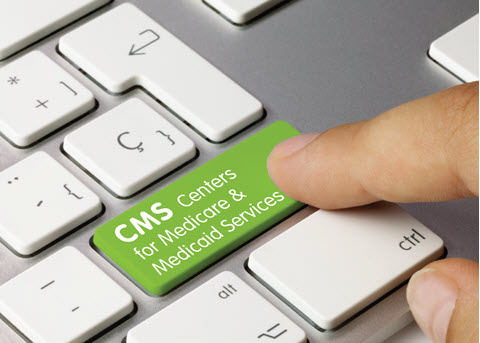Take These Important CMS Updates Into Account
Catch up on what you need to know about timing adjustments for proposed regulation and Medicare overpayments. The Centers for Medicare & Medicaid Services (CMS) has announced via a July 2022 proposed rule a delay in finalizing some provisions of its July 19, 2019, final rule “Medicare and Medicaid Programs; Requirements for Long-Term Care (LTC) Facilities: Provisions to Promote Efficiency and Transparency.” The 2022 proposed rule would provide an additional year for certain aspects of the 2019 final rule to take effect, on July 18, 2023. Observe These Changes The areas addressed largely focus on facility assessments, Quality Assurance and Performance Improvement (QAPI), infection control, and compliance and ethics program, says Sean Fahey, an attorney at HallRender, in online analysis: Fahey recommends that facilities review and revise their policies to see what updates affect their programs and procedures, and to keep in mind that while there are revisions, much of the original requirements stand, and facilities should be mindful of maintaining the required programs. Beware OIG’s Encouragement for CMS to Leave Less Money on the Table Just because the HHS Office of Inspector General (OIG) tells CMS to collect an overpayment, doesn’t mean CMS does it, a new OIG report concludes. The OIG “verified that CMS collected $120 million of the $498 million in … Medicare overpayments identified in HHS OIG audit reports issued during our audit period” from 2014 to 2016, the report summary notes. “CMS reported that it had collected $272 million (55 percent) and that it had not collected $226 million (45 percent),” the OIG adds. But CMS documentation supports only about $120 million of the $272 million it supposedly collected. The OIG gives CMS a laundry list of recommendations to rectify the problem, but “CMS generally did not concur with our findings or recommendations,” the OIG reports. Specifically, CMS agreed with only one of nine OIG recommendations, the report notes. For example: The OIG advises CMS to “determine what portion of the [undocumented] $154,631,632 was collected and recorded in its accounting system based on policies established in response to our recommendation,” according to the report. But CMS “non-concurs” in its response letter to the report, responding that “as the MACs process more than one billion claims annually, CMS does not believe it is operationally efficient or cost-effective to centrally oversee and retain copious documentation, such as system screenshots, for every claim processed and overpayment collected.” For the one recommendation with which CMS does agree, it still pushes back. The OIG tells CMS to “continue its efforts to recover any collectible portion of the $226 million in uncollected overpayments.” CMS Administrator Chiquita Brooks-LaSure replies in the letter that it “has never stopped collection efforts and continues to recover any collectible portion of the $226 million, some of which is no longer collectable due to changes in the sustained amount, provider bankruptcy, and settlements, among other reasons.” And “CMS uses its resources to collect identified actual overpayments in a manner that is cost effective and ensures that CMS complies with the statutory and regulatory framework for Medicare overpayment collections,” the response letter points out. CMS is not shirking its collections, Brooks-LaSure takes pains to point out. “For example, 60 percent of the uncollected payments were on hold pending an [Supplemental Security Income] SSI factor appeal, pending other provider appeals, or pending cost report reconciliation,” the letter says. “Subsequent to OIG’s review, CMS diligently collected funds as determinations were made. Another 15 percent of uncollected payments were from providers on repayment plans that were actively making payments, and five percent were uncollectable based on the provider receiving a favorable overpayment redetermination,” she adds. Note: The 63-page report is at https://oig.hhs.gov/oas/reports/ region4/41803085.pdf.


